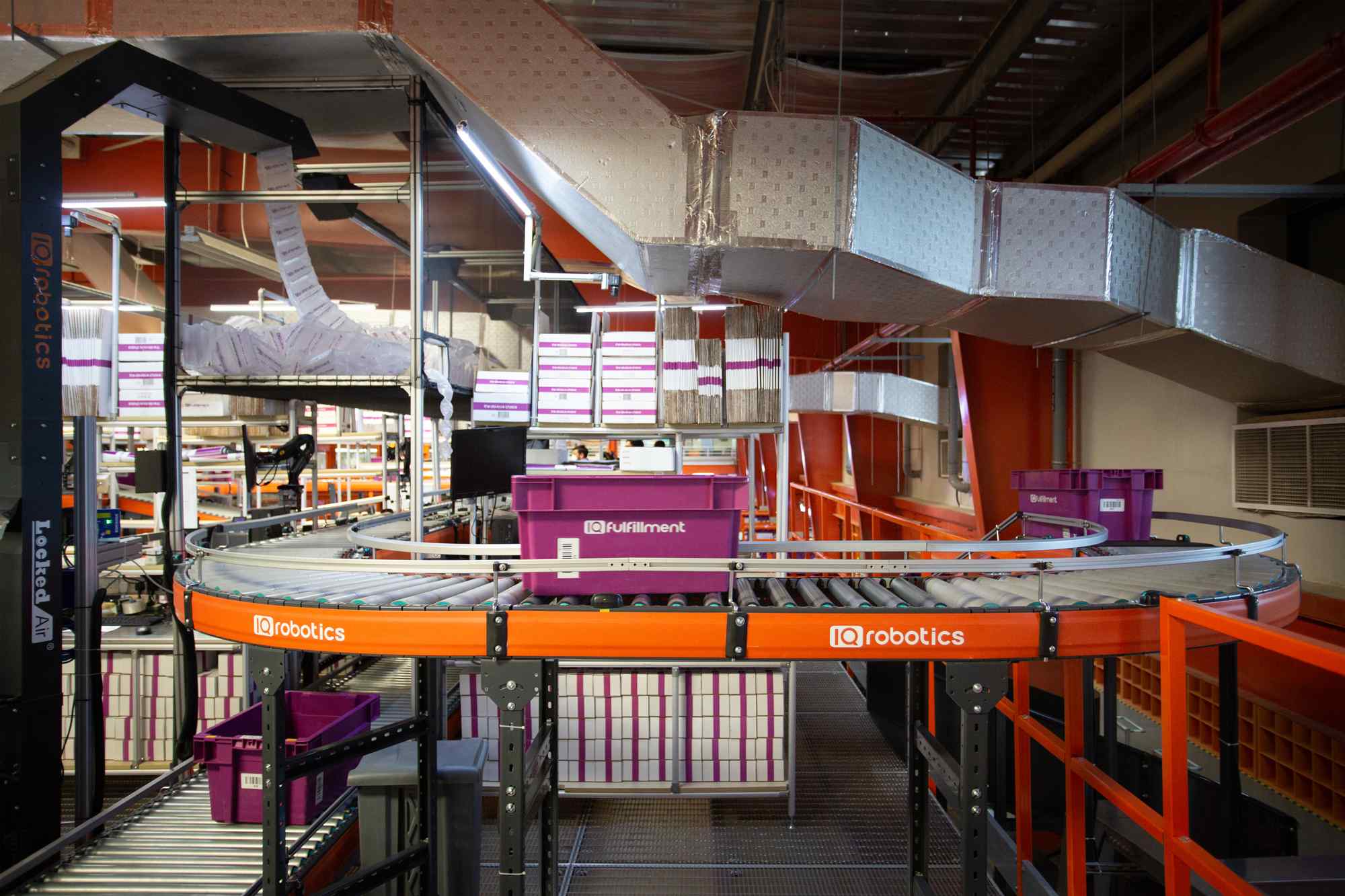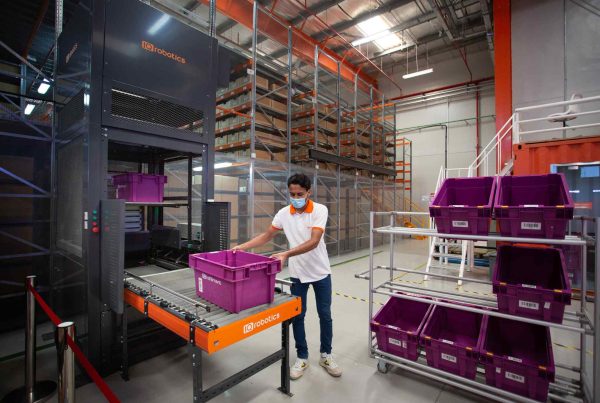Going digital is now a must for fashion brands, but it can prove to be a complicated and costly business. Fadi Amoudi, founder of the MENA region’s first robotic-driven fulfillment center, shares his advice on the pick, pack and deliver side of e-tailing
Even before the COVID-19 pandemic, e-commerce digital fashion and beauty sales in this region were already growing at an accelerated rate. According to a report published by Bain & Company in 2019, there was an annual growth rate of 27% between 2017 and 2019 in digital sales in the Middle East, with UAE and Saudi Arabia leading the pack. Industry insiders say that e-commerce growth may have doubled last year in the fashion segment thanks to the pandemic. Now that consumers have become used to just pressing a button, shopping digitally has become a way of life for many. This leaves small fashion brands with no choice but to adopt a “digital first” approach to their business. While customers think that all it takes is a click of a button, for fashion brands the logistics behind digital can be complicated and costly. They have to figure out warehousing, processing, packaging, last mile delivery and returns. This is where a fulfillment agency can come to a small fashion brand’s rescue.
About two years ago, Amoudi moved to Dubai with many years of experience in the FMCG business. He has lived in Beirut, Saudi Arabia and Miami, and hoped to open an innovative grocery-based e-tail business, and so began a feasibility study. He quickly found two major stumbling blocks – storage of products needs location and proper care and also manpower, as people need to prepare the orders. This led him to research fulfillment. Amoudi describes this as “all the backstage work that goes on for digital: pick, pack and deliver.” He discovered that there was no robotic fulfillment center in the MENA region and embarked on a mission to create one. His vision: ensuring end-to-end services, IQ Fulfillment (IQF) would help address logistical challenges experienced by SMEs. The company currently covers UAE, Saudi Arabia, Oman and Bahrain and is looking to expand throughout the region. IQF has the potential to process 12,000 robotic orders daily, delivering a 99.9% accuracy rate. Currently, IQF is doing a few thousand orders a day at its 43,000-square-foot Dubai warehouse, with a staff of just 12 people – the rest is done by robots.
The company takes care of everything that happens from the minute a customer checks out. Amoudi is already working with CTZN Cosmetics, sports apparel brand Bia and colored lenses provider Eyecandy, and he’s open to working with companies that do multiple orders in a day as well as those that are just starting out and only receive a few orders in a week. “In theory, all you need is your e-commerce shop and trade license, and you are ready to go digital.” Of course, in reality, it takes a lot more than this. His advice to fashion brands looking to go digital is to first study the market, understand who your customer is and find out what it is they need. Then comes adding a buffer for hidden costs. For example, he finds that 70% of customers still prefer “cash on delivery.” This leads to returns – Amoudi estimates about 30% of fashion goods are returned, and while it costs the customer nothing, the brand still has to pay for the fulfillment and delivery charges.
“What is most crucial is marketing and customer experience,” says Amoudi. Of course, a brand does need to make an investment in stock – and he advises you have two pieces available in a size of every stock. “Sometimes having a sold-out product can work in your favor – being sold out in fashion tends to make things more desirable, but it needs to be available again in a short time span, or customers will become annoyed,” he says. Which is why he suggests you start with a limited offering.
He believes that direct to consumer is the way forward for all fashion labels. “Think of your digital platform, be it a website or app, as your online flagship store.” It is here that customers experience the touch points of the brand, from navigating the site to the packaging. “It must be a lovely experience and those small things like a personal thank you note make all the difference,” he says. He recommends brands spend time on this aspect of the business and partner with companies such as his for the logistics. “This way you are not wasting your time on processes that take time and are not your forte.” Though he does say today all fashion brands need to have an understanding of the processes of fulfillment and delivery. “This is as important as the creative process today.”
Posted at https://fashiontrustarabia.com/the-importance-of-fulfillment/ on 2021-01-10





